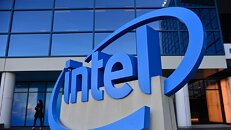Patent trolling again? And why would they start a new company just to hand two patents to so it can start a legal battle with Intel? Why didn't NXP do it themselves?
Don't get me wrong, but whenever someone starts slinging that mud saying someone may be patently obvious trolling when claiming some patents have been violated, I'm always amused that the majority of people in a knee-jerk reaction hop onto that blame-train and stick to the status quo – especially if the accused one in question is a more prominent U.S. based
rogue ruthless big business.
Since if the past has shown anything on lawsuits, it's that most accused ones were always quick to blame the other side of the same – when in fact the initially accused one was to blame and actually violated given patents being claimed having violated. Care for an example?
Just take Qualcomm vs Apple – and how
Apple's sole intention was, to harm Qualcomm's business from the get-go already years in advance prior to any law-suits, how
they gave away Qualcomm's confidential IP they have been granted in confidence to Intel (so that Intel could build their own modems using Qualcomm's technology)
and whatnot.
'Member how
Intel was recently sued by the well-reknown Chinese Academy of Science for violating their patents on FinFets, and how they only asked for $ 28 million (yes, you read rightly; only 0.028 billion for violating the most crucial bunch of patents of today's underlying chip-technology) to solve the issue altogether forever? You know what happened instead? Intel went on to try get
all of the disputed patents being recognised as invalid. So the pretty legitimate question remains on the given
»… but why, Intel?!«.
The question remains, when it isn't that much and can be considered peanuts already for Intel (no doubt about it; they likely pay even more for post-stamps per year already), then
why on earth is it that Intel has tried various attempts in getting said patents in question being disputed and recognised as being invalid.
On April 24, 2018, the Beijing High Court held a hearing, and the trial date has not yet been set. During this time, Intel has done a lot of work in response to litigation. In March 2018, Intel filed an invalid application for finFET patents with the Review Commission for the first time, and in September of that year, the Review Commission organized a oral review. On January 31 the following year, the Review Commission issued a review decision to maintain the validity of the FinFET invention patent. Intel then filed a finFET patent invalid application with the Review Board for the second time. The invalid review is still ongoing, has been oral, and the review decision has not yet been issued.
At the same time, in September 2018 and March 2019, Intel filed two applications with the U.S. Patent and Trademark Office (“USPTO”) for FinFET patents, and U.S. equivalent patents 9070719 (“719 Patents”) are invalid. USPTO rejected Intel’s application in March and September 2019, respectively. Intel did not accept this result, and in April and November 2019, respectively, filed a review request and petition with the USPTO and its POP to challenge the USPTO’s review decision. In January 2020, the USPTO rejected Intel’s request for a review in April 2019 In June, the U.S. Patent Trial and Appeals Commission (“PTAB”) rejected Intel’s request for a retrial.
So in other words, Intel has tried several times, in the U.S.
and China, to recognise the patents in questions as being
invalidated.
All of those filings for action for annulment and nullity suits (in favour of Intel) were rejected nonetheless (to the detriment of Intel itself), several times in a row –
even by the U.S. Patent and Trademark Office itself. Doesn't that speak a lot for itself already, that there are in fact valid accusations towards Intel of IP-theft?
The answer is: Since they know they did so and were actually accused rightfully and do everything in their power for
not being possibly held accountable,
if such cases of accusations could turn out to be
true confirmed to be actual truth in court in the first place.
When even the U.S. itself wants to recognise given claims of Intel and outright denied them the favour of annulments. … and that was already when our all saviour bold perm was still in charge, midn you.
Sadly, Intel has a history of intellectual property thefts. Bigger examples are Intergraph (twice!) and a multi-billion settlement with then Digital Equipment Corporation (wonder how Intel regained the performance crown and kept it for so long?). Ever heard of Cyrix and how Intel stole a shipload of their technology on energy-saving mechanism? We could go on for hours, you got the idea.
… and just between ourselves, tech-geeks these days; If anyone needs to be explained who's likely the one having violated patents when the accusant in question is of all things
VLSI Technology (one of the hatcheries of the silicon industry on ASIC-logics and whatnot), than people in question need to be beaten with Smith's ›A
n Inquiry into the Nature and Causes of the Wealth of Nations‹ and Keynes'
›The General Theory of Employment, Interest and Money‹, and hopefully slapped with Wooldridge & Greenspan's
›Capitalism in America: A History‹ afterwards – especially if the accused one is once more
Intel.
That being said, given Intel's past, it's pretty save to assume that Intel is rightfully accused here (once more). Point's made.
This company has invalidated every single benefit of doubt for every given future – by their countless shady and straight-out harmful to evil anti-competitive actions.








